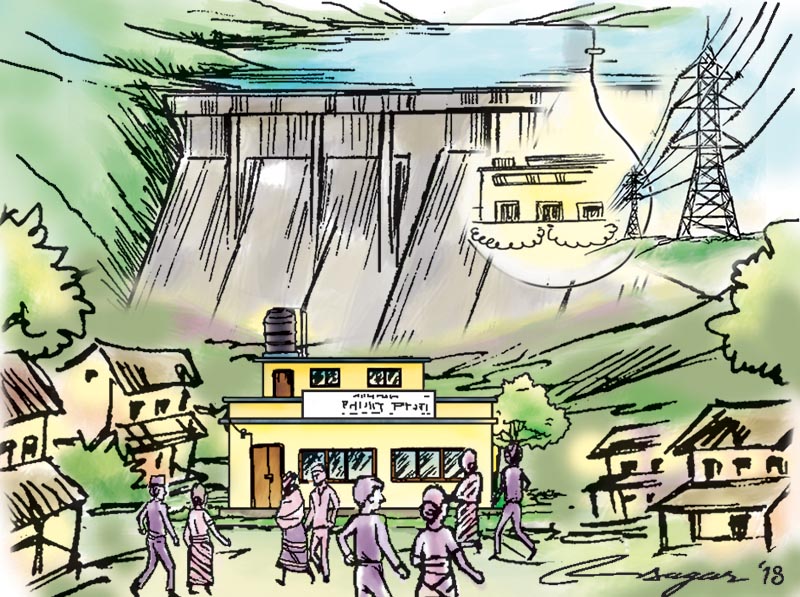Construction of Lower Likhu hydel project partially halted
Kathmandu, January 13
Due to the dispute with locals, the construction of 28.1-megawatt Lower Likhu hydropower project has been partially halted since December 31.
The locals of Ward 2 and Ward 3 of Likhu-Tamakoshi village municipality of Ramechhap district have accused the Swet Ganga Hydropower and Construction Public Ltd (SGHCPL), developer of the hydropower project, of preparing a dubious environmental impact assessment (EIA) report.
The locals have stated that the project developer hid the exact findings while preparing the EIA report.
According to Govinda Khadka, chairperson of Likhu-Tamakoshi village municipality, the developers are not concerned about issues like deforestation that have been raised by the affected locals. He also said that the developer has not taken into consideration the fact that the project could affect the local schools, irrigation canal and roads, among others.
“We have spoken about our concerns with the project officials but they have been ignoring our genuine demands and are trying to exert undue political pressure on us which is not acceptable,” Khadka said.
Meanwhile, Subarna Das Shrestha, director of SGHCPL, has said the company has been following the EIA report and detailed project report, which were prepared as per government law. He mentioned that both locals and the local government have not taken ownership of the hydel project and don’t want to coordinate and partner with the project.
Speaking at a programme today in the Capital, Shailendra Guragain, president of Independent Power Producers’ Association, Nepal, said that many government and private hydel projects have been affected due to disputes between locals and developers. The central government needs to find a solution as soon as possible for a better investment environment.
A consortium of banks led by Laxmi Bank has financed the Lower Likhu hydropower project. The overall cost of the project has been estimated at Rs 5.60 billion. The banks will be investing 75 per cent of the total investment whereas the remaining 25 per cent will be invested by promoters and general investors. On August 22 last year, The Dolma Impact Fund had also invested $3.2 million in equity investment in the project.






